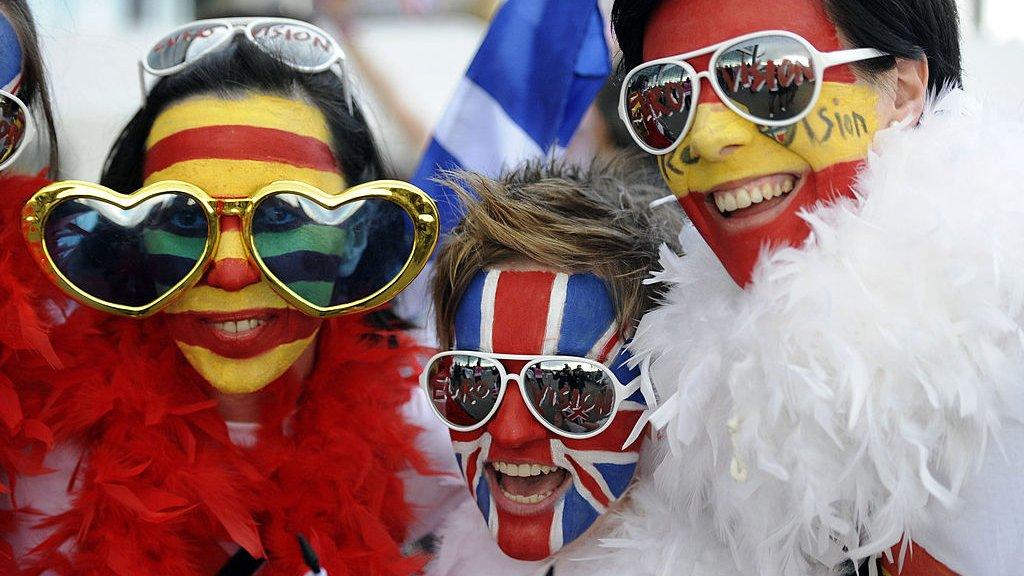Eurovision 2023: Fans mark Super Saturday with seven songs selected
- Published
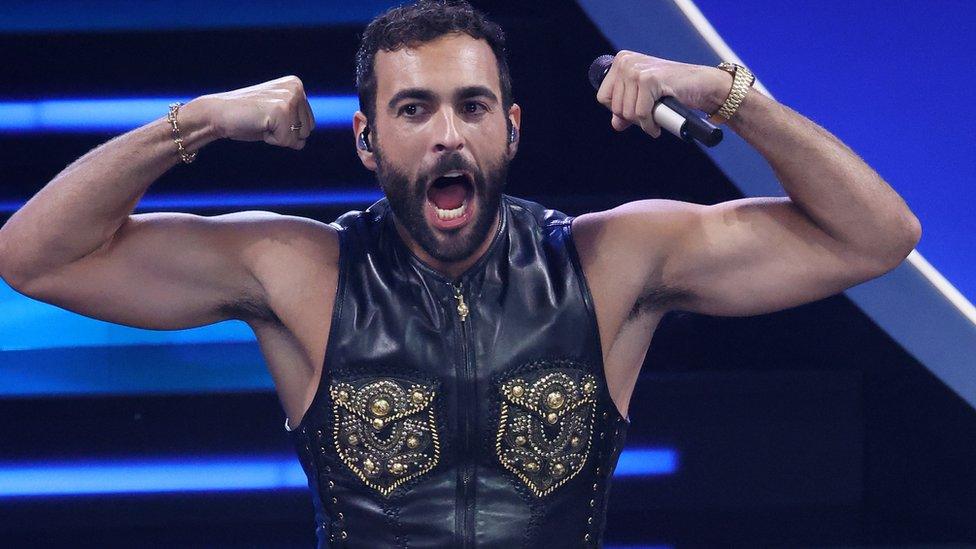
If Marco Mengoni wins Sanremo on Saturday night he'll get first refusal to represent Italy in Liverpool
If you're a sports fan, imagine having to choose between watching the FA Cup final, a Wimbledon singles final, or the final Test match in The Ashes.
In Eurovision world that's sort of what fans are having to contend with, on what's been dubbed Super Saturday, as seven countries air huge TV programmes to pick a representative for the song contest in May.
While there are 13 weeks until the song contest's grand final, 20-year-old Ethan Wilshaw from Plymouth will be sitting down with his parents to spin through performances from Italy, Estonia, Denmark, Malta, Latvia, Croatia and Romania.
"It's quite stressful but I think that sort of chaos and overwhelming nature is inherent to Eurovision," he tells BBC News. "I don't know how I'm going to prioritise them but the good thing is the different time zones because you can dip in and out."
He first watched the national final season in 2019 and one of his favourite things he's learnt is "how important it is for other countries" with these finals being the biggest night on TV in parts of Europe.
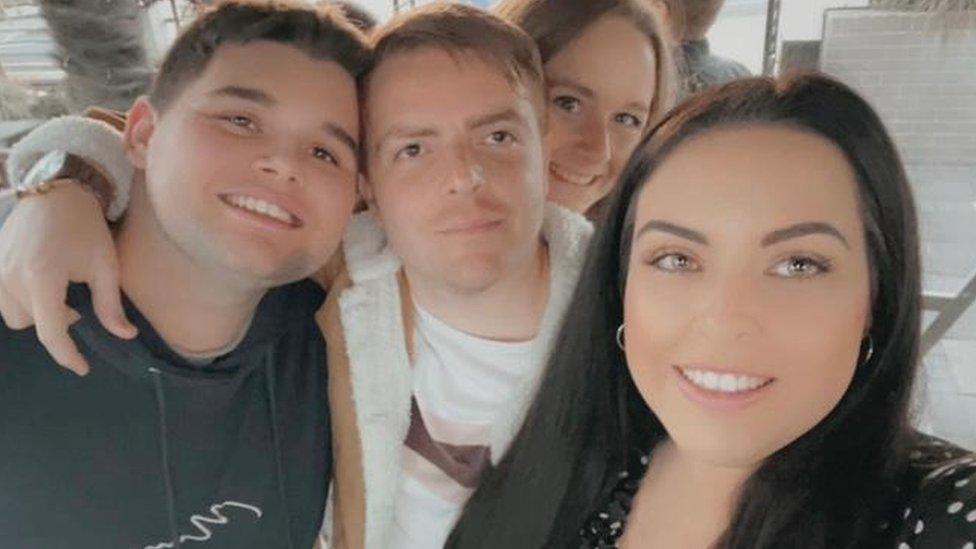
Ethan (left) will be travelling to Liverpool with his friends in May for Eurovision week
There are typically two ways a Eurovision entry is chosen: an internal selection - an act chosen behind-the scenes - or a national selection - a TV show with the winner getting to fly their country's flag in Liverpool.
In its 73rd year, Italy's five-night iconic Festival di Sanremo, which has become essential streaming for Eurovision fans, will see a winner chosen from the 28 competing acts. There are also special guests like Black Eyed Peas, Depeche Mode and Rage Against The Machine's Tom Morello.
I watched the second night on Wednesday with Italian friends who helped me with translation, told me the back story of contestants, and didn't kick me out for bringing a Hawaiian pizza (grazie).
The show really is a unique event and, after pizza (and tiramisu), I still couldn't think of a comparable cultural show that unites a nation the way Sanremo does - but I ended up with a cross between the Royal Variety performance, the Super Bowl halftime show and the New Year's Eve countdown.
The country's president, Sergio Mattarella, attended the opening night while other politicians and celebrities filled the seats for the rest of the week in black tie, with a huge chunk of the population watching at home, peaking at more than 16 million and a 62% share of TV viewers, external.
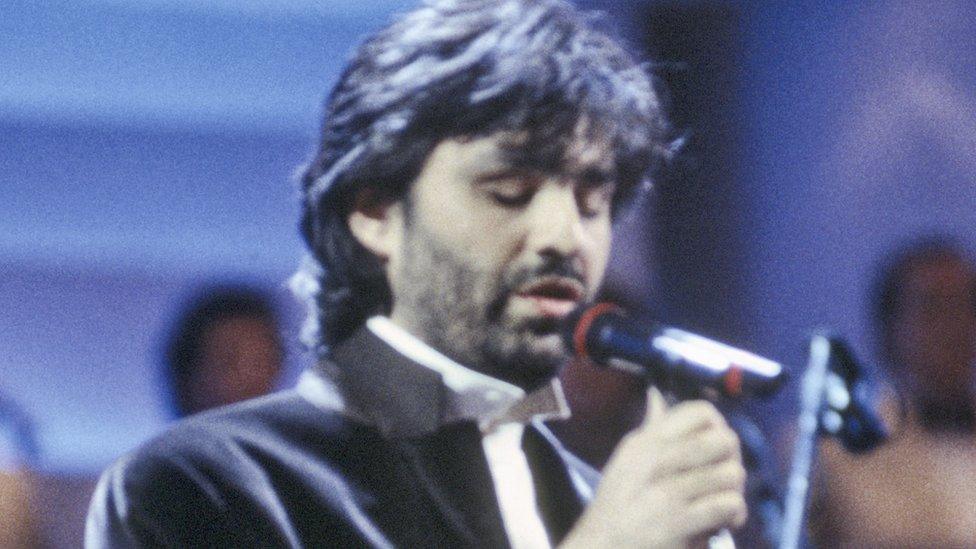
Andrea Bocelli rose to fame after winning Sanremo in 1994 but Italy didn't take part in Eurovision that year
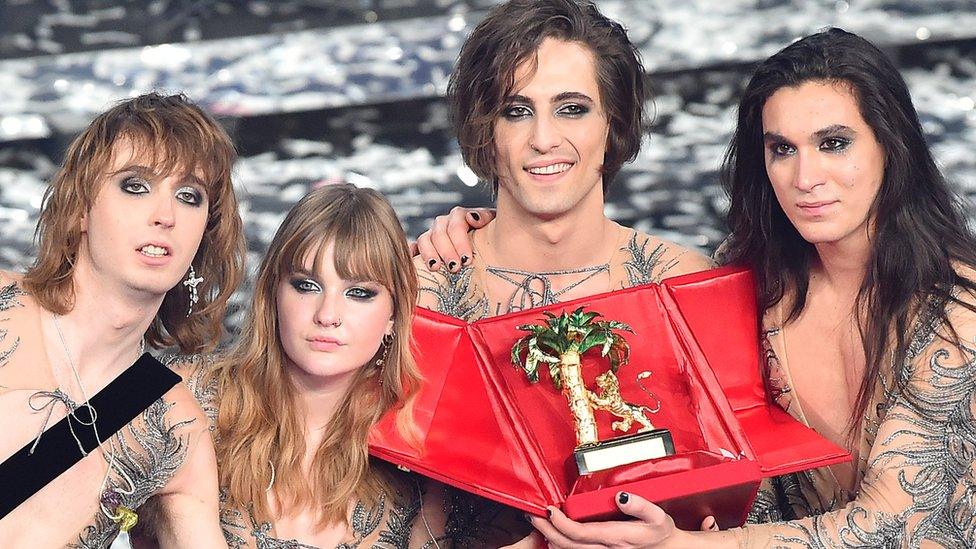
Måneskin had to win Sanremo - the inspiration behind Eurovision - before competing and winning the song contest in 2021
Måneskin, who've just released a new album and were nominated for best new act at last week's Grammy Awards, still describe winning the festival as "one of the top three achievements" in their career.
Speaking to BBC News, frontman Damiano David says: "Eurovision somehow makes sense that we won because we had cool outfits, had a powerful song and were very different from all the other contestants. It makes sense in my mind.
"To win the most classical and traditional competition in Italian music... it's not what we do, it's not rock and roll music - it's soft pop or very deep song writing. It is still one of the most astonishing things that ever happened and I can't explain it."
The winner this year is tipped to be Marco Mengoni, who represented Italy at Eurovision in 2013, but he's adamant he "just wants go on stage and feel like I'm on tour".
"It's a cultural event and this year the cast is amazing," he explains on the BBC's Eurovisioncast podcast. "Sanremo is a reflection of Italian music, all the rainbow colours of music are represented on stage."
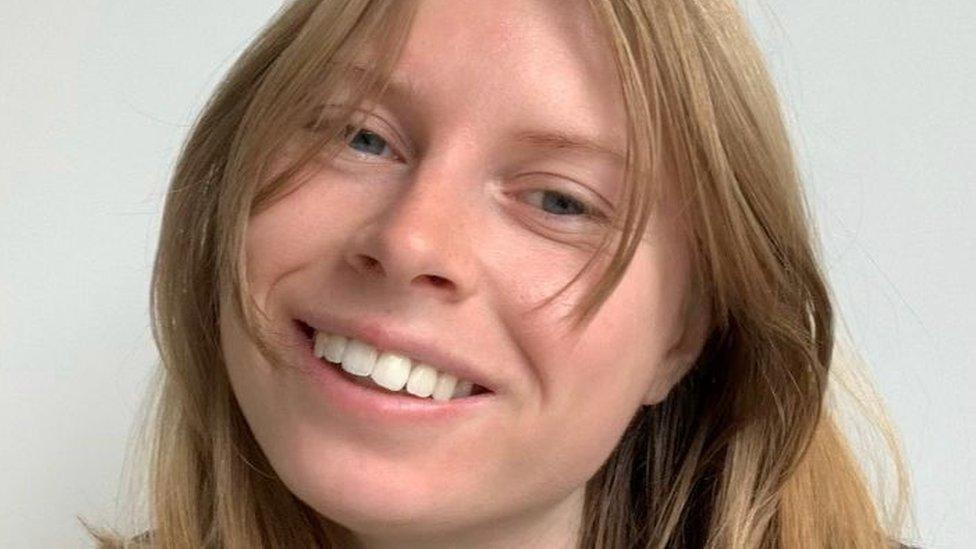
Mandy began watching all the different national finals in 2021 and always has this weekend marked in her diary
Italy by far has the biggest national final on Saturday, but Estonia's Eesti Laul and Denmark's Melodi Grand Prix also command big domestic audiences, as well as fans abroad streaming them.
The conversation dominates the fandom on Twitter and in WhatsApp group chats, which can be "a chaotic mess" for fans who live and breathe Eurovision all year.
"I will try to watch as many as I can," explains 22-year-old Mandy Huibregtsen from Rotterdam, The Netherlands.
"Estonia has a super strong selection this year. My brother's girlfriend is Maltese, so she's been keeping me up to date with that. In national finals in other countries they give smaller artists a platform."
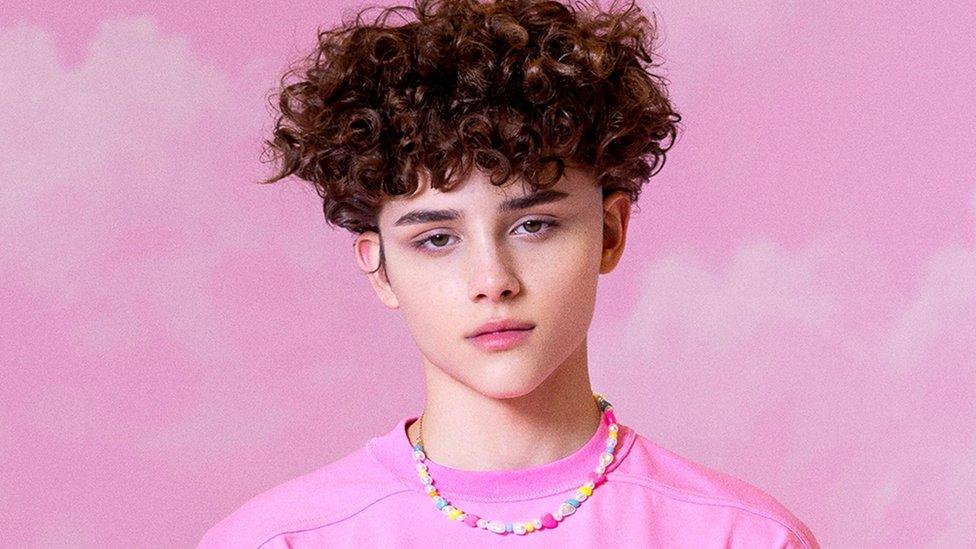
Reiley who has more than 10 million followers on TikTok is hoping to win Denmark's Eurovision selection show
Italy's 28 acts is dwarfed by Denmark's eight artists in Dansk Melodi Grand Prix taking place in Næstved arena, about an hour outside of Copenhagen. Last year's Eurovision winners Kalush Orchestra will be the interval act.
"I wanted to have a deeper connection to my home territory", Reiley, who lives on the Faroe Islands, a self-governing nation under the external sovereignty of the Kingdom of Denmark, tells the BBC just before rehearsals.
"I've done music in a bunch of different places but never in Denmark. I just love performing and any opportunity to put on an amazing show for people."
Most of his fans are in South Korea, after a previous song went viral there, but he says "it's awesome" fans outside of Denmark will be watching him compete on Saturday night.
The rundown on the 2023 contest in 50 seconds
This year the BBC is using an internal selection for the United Kingdom, working with the same management company who approached Sam Ryder last year.
A Eurovisioncast listener called Ben asked as these shows across Europe are so big now, if I thought the BBC would revisit that format in the future?
The success of Sam Ryder - chosen internally - and the pressure for the UK to continue its success makes me think it would be a risk but Ethan in Plymouth disagrees.
"I've actually managed to get my Mum and Dad to watch them with me and we get a takeaway," he laughs. "I do think as we've found our mojo we would benefit from one.
"We've got the public interest for it now and I think the UK would be engaged with one".
All the build-up, insights and analysis is explored each week on a new BBC podcast called Eurovisioncast.
Eurovisioncast is available on BBC Sounds, or search wherever you get your podcasts from.

- Published4 February 2023
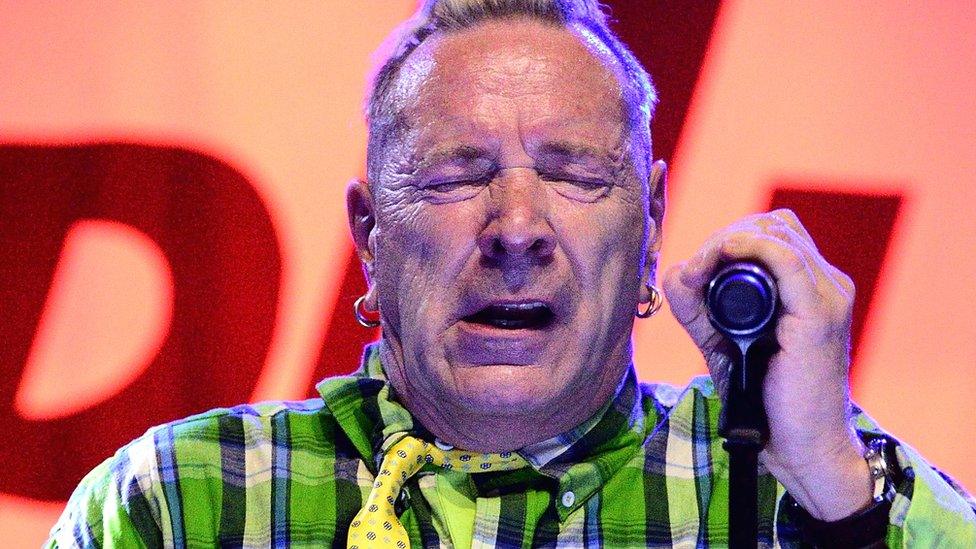
- Published17 December 2022
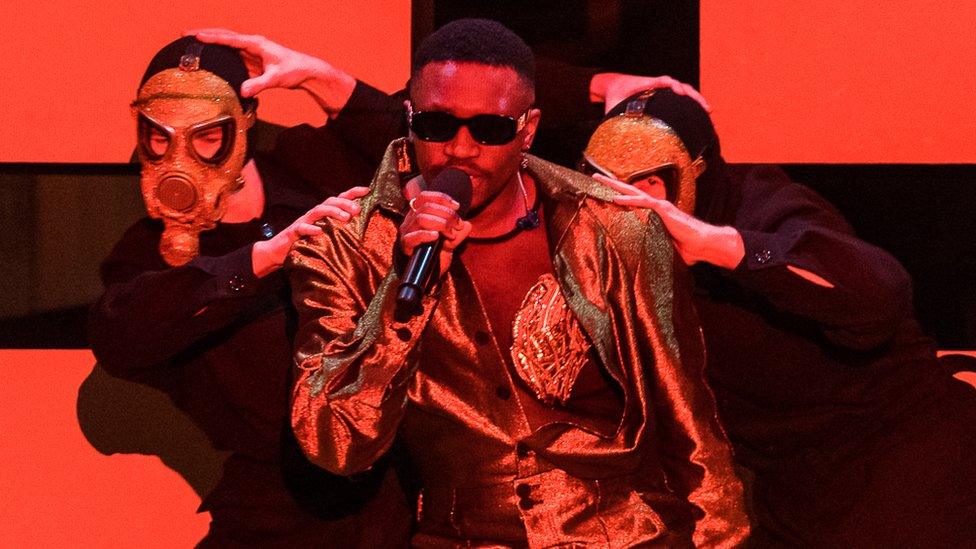
- Published12 May 2023
